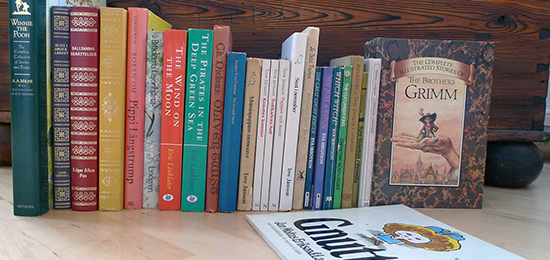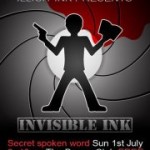I’ve read an awful lot of supernatural crime fiction in the last couple of years to understand its conventions. My main character is a woman so I started by reading books about female main characters. At first, I found a lot of American books with female MCs. (Anita Blake, Sooki Stackhouse, Bella Swan, Rachel Morgan, even Kismet Knight. I’ve read them all.) On the one hand it was great that there was clearly a market for female characters. On the other hand, there was something about them that irritated me.
So I looked further and found a bunch of male writers in, what I thought, was the same genre. Mike Carey, Larry Correia, Ben Aaronovich, Malcolm Pryce, even China Mieville, write super-natural crime stories. They were very different from the first set of books that I read.
The problem was that most of the books with female characters fall in the supernatural romance cross-over genre. When I started my research I didn’t know that there was such a thing. I have some reservations about the genre, or rather, the female main characters. I like my main characters, male or female, to have gumption, agency and self-determination.
Part of the pleasure with the romance stories seems to be that the main character is swept along, unable to or stopped from taking control of her own life. Yes, many of them have agency and show pluck, and there are some areas of their lives they have control of – romance not being one of them – but there there’s all the other stuff that I find tedious and that male supernatural crime fiction heroes are delightfully free of. Silk dresses, for example. Male heroes don’t have to go clothes shopping and never risk popping out of their bras.
More importantly, male characters have to make their own decisions about relationships and sex. They can’t defer that to a much older but still young-looking partner. They aren’t always the most mature but they have to be adults: they chose their actions and take the consequences.
Here’s a table of some of the differences that I’ve noticed. I’m being unfair to both female and male male characters – some women have guns and some men have crushes – but I’m OK with that.
| Female Main Characters | Male Main Characters |
| Spend a lot of time talking about clothes and getting dressed, often by their partners who have better taste and more money. | Don’t care about clothes. |
| Are more than commonly attractive and have long, shiny hair. And big breasts. | Are nothing special in the looks department but are strong. And clever. |
| Have a vampire boyfriend who adores her blindly. This gem comes with lots of moolah, an eye for striking outfits, and superb self-control. | Are single. |
| May also have a werewolf boyfriend or other interesting parties that they want to have, or have had, sex with, which is all very confusing both on a physical and moral level. | Hook up and move on. |
| Follow. | Lead. |
| Have psychic super-powers (mind reading is common). | Are equally good with a curse or a gun. |
Do the gender differences in these books reflect the interests of the male and female reading public? The books sell and, presumably, to their intended audiences. So, I suppose they must. They don’t satisfy me, though, and I hope that there is room for a different kind of main character: a female who isn’t chasing romance. More of a crime fiction main character, in fact.
The main character of my first novel is a young woman with a psychic super-power. She’s also single, a private detective, of sorts, and neither hard-boiled nor meltingly soft. She’s fairly well educated and runs a business with her mum. Because of who she is and what she does, she’s in a tricky position socially and politically. This informs her behaviour. She’s might be pretty, and have long, glossy hair, but I’m not telling. It’s just not as important as all the other stuff that makes her what she is.

